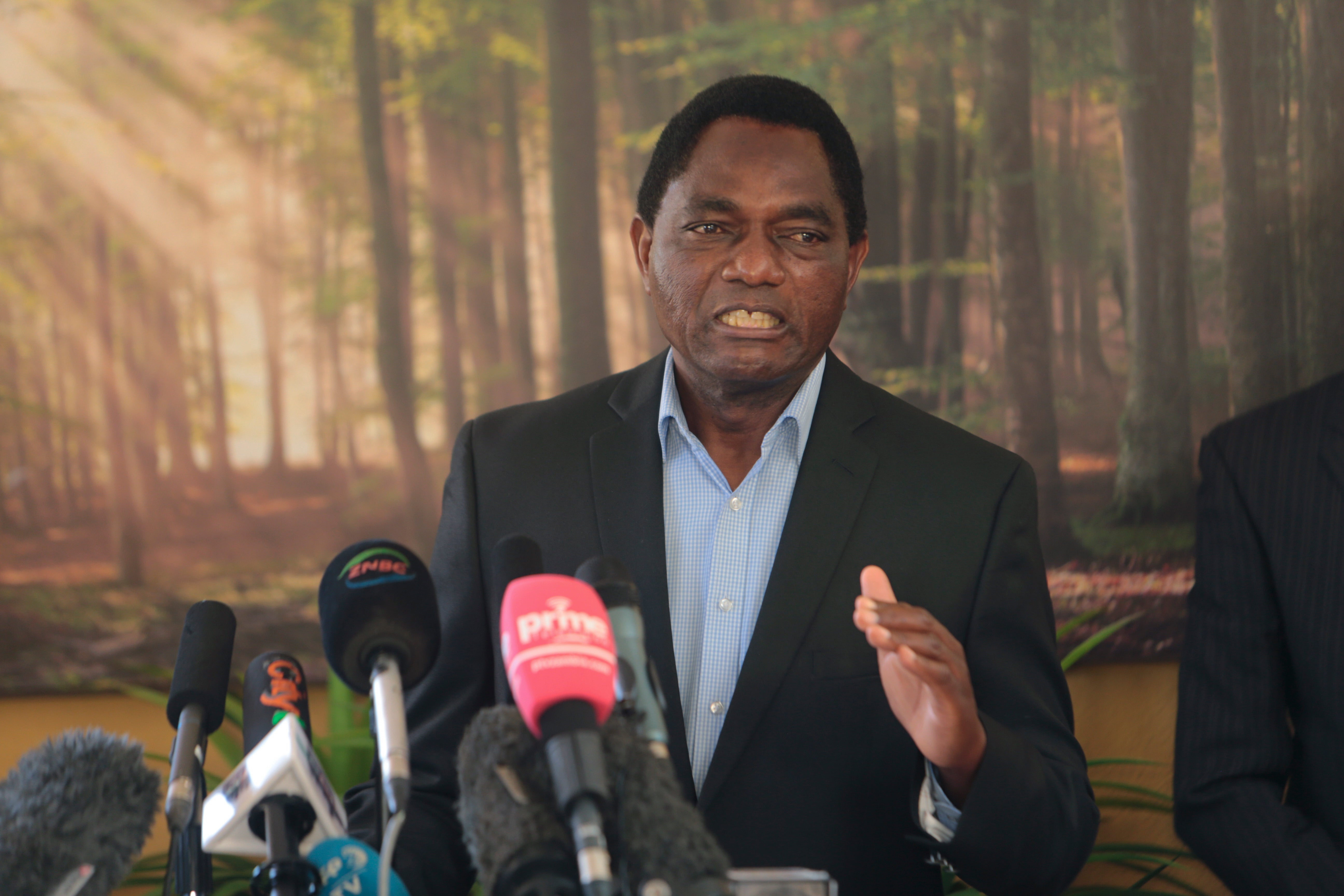Fresh from a deadly cholera outbreak, Zambia declares drought a national emergency
Zambia’s president Hakainde Hichilema has declared the country’s debilitating drought a national disaster and emergency

Zambian President Hakainde Hichilema Thursday declared the country’s debilitating drought a national disaster and emergency, saying it has devastated food production and electricity generation as the nation battles to recover from a recent deadly cholera outbreak.
Like some of its neighbors, the southern African country is suffering a severe drought as the El Nino weather pattern worsens harsh weather conditions attributed in part to climate change.
In an address to the nation, Hichilema said he has instructed security forces to focus more on food production in the largely peaceful country.
He said 84 of the country’s 116 districts are affected by the prolonged drought and authorities will take food from areas where there is an excess and distribute it to needy areas. In addition, the country plans more food imports and is mobilizing United Nations agencies and local businesses to assist.
The drought has destroyed about 1 million hectares (2.5 million acres) of the 2.2 million hectares (5.4 million acres) planted with the staple maize crop, he said.
“This drought has devastating consequences on many sectors such as agriculture, water availability and energy supply, risking our national food security and the livelihoods of millions of our people. The dry spell is projected to continue even into the month of March, affecting over 1 million of our farming households,” said Hichilema.
Electricity generation has not been spared, with the country expecting a power deficit of about 430 megawatts “potentially reaching 520 megawatts by December,” he said, as water levels decline at the country’s major source of hydro power, the Kariba Dam, which it shares with neighbor, Zimbabwe.
To cope, the country will import electricity and also ration supplies to its approximately 20 million people, he said.
Zambia was recently hit by one of its worst cholera outbreaks that killed more than 400 people and infected more than 10,000.
Some Zambians, weary of continued crises, have coined songs labeling the outbreaks of coronavirus and cholera as well as the current drought as a “triple tragedy,” said Hichilema.
Although many countries in southern Africa are yet to declare a national disaster, they are also in a dire situation because of the influence of El Nino weather patterns, according to the U.N agency, the World Food Program.
Parts of Zambia, Zimbabwe and Botswana are experiencing the driest February in the past 40 years, while severe rainfall shortages have been recorded in southern Malawi, eastern Angola and parts of Mozambique, said the WFP in a bulletin this week.
The United States Agency for International Development, the U.S. government’s foreign aid agency, has estimated through its Famine Early Warning Systems Network that 20 million people in southern Africa will need food relief between January and March.
Many people in the areas of highest concern such as Zimbabwe, southern Malawi, parts of Mozambique and southern Madagascar will be unable to feed themselves into early 2025 due to El Nino, USAID said.
Bookmark popover
Removed from bookmarks